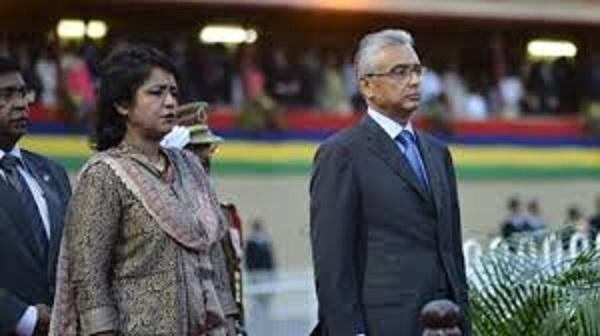Africa-Press – Mauritius. The alliance between the PTr and the MMM appears to be on the way to being sealed, with a reunion between future partners on Wednesday and the public presentation of the terms of the agreement on Saturday.
We will see more clearly, during this exercise, the outlines of what is proposed to us as mechanisms of governance and constitutional balance in the mentioned Second Republic.
This realignment of powers between the Prime Minister’s Office (PMO) and the Presidency, deemed necessary, is probably inspired by the experience accumulated by the leaders and directors of the two major political parties on the local chessboard.
Inspired by the Westminster model, our Constitution, for which we have certainly never voted for, contains a number of specific provisions to prevent risks of autocratic drifts or bad governance.
As such, we could mention a considerable freedom of the press and private radio stations, the recognized independence of the judiciary, the constitutional powers of the Police Commissioner, the Director of Audit, the DPP and the Office of Public Prosecutions.
Other institutional mechanisms have been added to expand and improve this democratic resilience. Recruitment and promotions in the public service and disciplinary bodies are the domain of independent institutions with their appeal mechanisms.
The creation of the Equal Opportunities Commission has opened up other, more rapid and arguably more effective avenues for resolving disputes allegedly on discriminatory grounds. The award of public contracts is based on structured tendering and appeal mechanisms.
The fight against fraud, conflict of interest and corruption has an independent structure, the ICAC, although it seems that this needs to be fleshed out in the light of experience gained.
This is a normal process which must continue by continually adapting and improving what must be at the level of laws, mechanisms and institutional procedures.
Yet the impression has taken hold, partly (and only partly) fueled by a campaign by the press and political opponents, that too much power is vested in the hands of the Prime Minister (PM) and too many incessant arbitrations.
, sometimes harmless, must systematically demand the attention of the PMO and the Trésor Bâtiment. Ramgoolam and Bérenger are aware of this and seem convinced that this situation must be changed.
We understand that the Second Republic therefore proposes to share these responsibilities while carefully marking out the attributions of the two protagonists, with a President, acclaimed by national consultations, guarantor of the Constitution and the axes of development, of the great framework, supported by a PM, resulting from the legislative elections, retaining his role of “conductor” of the ministerial cabinet, in charge of the coordination of government action and its execution.
So that this formula is not a source of chronic and destabilizing instability for the country, this Presidency must have the necessary room for maneuver in order to ensure that its new prerogatives are respected in unforeseen cases where all the other avenues, and they are multiple, political conciliation would not have succeeded.
If this delimitation of the respective spheres of responsibility is adequately resolved, nothing prevents even considering the functioning of the institutions between a President and a PM from two different political sides, a French-style cohabitation.
However, some who on the airwaves and in the press, were regularly offended by the powers considered to be excessive of the PM, curiously, denounce today with the same vigor, this announced re-balancing, which should grant to the new Presidency, elected to the universal suffrage, new semi-executive powers.
This variable geometry will appeal only to those who have not understood that a fraction of the press seems viscerally hostile to this alliance project, for reasons which remain obscure.
They will apparently still have some cards to play, even if it means unearthing political ghosts from another age because other steps have yet to be initiated following the presentation of the political agreement this Saturday: the work on a common manifesto, draw up a common list of PTr-MMM candidates, the resumption of Parliament at the beginning of October, the announcement of the presentation or not of the Budget or of the date of dissolution leading to the general elections.
On both sides, the habit of working together is hardly entrenched; the sources of friction, small or large, are undoubtedly real and multiple, even if there is no doubt that the two leaders and their principal lieutenants will have already understood the risks and the stakes.
The country needs stability, renewal and a government more broadly representative of all sections of the population to reach a new level in its economic trajectory despite an international situation which remains very difficult in Europe.
The PTr-MMM alliance is the only one capable of ensuring broad sociological representativeness. Its common program, still to come, already indicates a renewal of ideas and, if only at the institutional level, a transformation of the political framework which has long governed and conditioned our electoral reflexes. However, political stability must be ensured in the equation.
For More News And Analysis About Mauritius Follow Africa-Press







